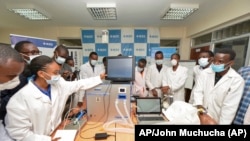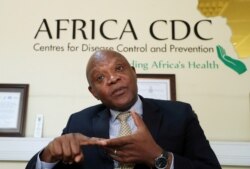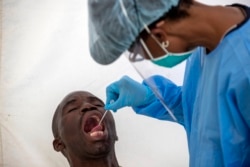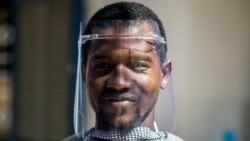When the coronavirus pandemic was declared six months ago, international health experts were worried about people in Africa. Many feared the virus would cause great suffering across the continent.
This has yet to happen. In fact, experts are now praising the actions African countries have taken to deal with the pandemic. They say those actions have been more effective than those taken by some richer countries, including the United States.
John Nkengasong has helped shape Africa’s 54 countries into an alliance for fighting the pandemic. Nkengasong is director of the Africa Centers for Disease Control and Prevention. He once worked at the U.S. Centers for the Disease Control and Prevention (CDC).
Nkengasong has modeled the African health organization after his former employer. He told The Associated Press it pains him to see the U.S. CDC struggle during the pandemic.
Gayle Smith is a former administrator with the U.S. Agency for International Development. She said, “Africa is doing a lot of things right the rest of the world isn’t.”
The United States has about 200,000 deaths from COVID-19. The world has about 1 million. The number of COVID-19 deaths in Africa has been slowing in recent weeks. Among the 1.3 billion people living in Africa, there have been just over 34,000 confirmed deaths.
Africa’s 1.4 million confirmed cases of COVID-19 are far less than earlier estimates. Testing is expected to show more infections. But most cases are asymptomatic -- meaning the person shows no signs of the disease.
Health experts say three things are helping to keep death rates down in Africa: a young population, quick action on lockdowns and the virus’s relatively late arrival on the continent.
Getting the right resources
Born in Cameroon, Nkengasong is a virus expert. He says that Africa can fight COVID-19 if given the right resources.
Early modeling, Nkengasong said, assumed that “a large number of Africans would just die.” However, the Africa CDC decided not to act on those assumptions.
As Africa’s top public health official, Nkengasong quickly jumped into the race for medical supplies and now a vaccine for COVID-19. Supplies slowly improved. African countries have done about 13 million tests for the disease. That is enough to cover about one percent of the continent’s population. Nkengasong noted the ideal is 13 million tests every month.
He has been urging African countries to help themselves and not to wait for outside help. The money, he said, is there.
Acting on that idea, Africa’s public and private industries created a way to buy drugs and other supplies online. Governments can buy directly from manufacturers -- things such as rapid testing materials, face masks and machines to help patients breath – called ventilators. And some of these products are made in Africa.
Caribbean countries are also using this supply chain.
“It’s the only part of the world I’m aware of that actually built a supply chain,” said Gayle Smith, the former USAID chief.
When the pandemic began, just two African countries could test for the coronavirus. Now all can.
Nkengasong also saw that some areas in Africa were not getting important information. So, the Africa CDC holds online training on everything from safely handling remains of patients who died from COVID-19 to following the spread of the virus.
Nkengasong said Africa needs at least 1.5 billion doses of COVID-19 vaccine. This will be enough for about 60 percent of the population. That will cost about $10 billion.
The World Health Organization says Africa should receive at least 220 million vaccine doses. While that is welcome, Nkengasong said, it is not enough.
For him, the next major issue is shipping doses throughout the continent with the world’s worst infrastructure. Nkengasong noted that less than half of African countries have access to modern healthcare.
He plans a major conference next year to press countries to greatly increase health spending before the next pandemic.
“If we do not,” he said, “something is terribly wrong with us.”
I’m Jonathan Evans.
And I’m Anna Matteo.
Cara Anna wrote this story for the Associated Press. Anna Matteo adapted it for VOA Learning English. George Grow was the editor.
_________________________________________________
Words in This Story
pandemic - medical noun : an occurrence in which a disease spreads very quickly and affects a large number of people over a wide area or throughout the world
lockdown – n. the confinement people to their homes or of prisoners to their cells for a temporary period as a security measure
resource – n. a supply of something (such as money) that someone has and can use when it is needed
assume – v. to think that something is true or probably true without knowing that it is true
supply chain – n. the steps of processes involved in the production and delivery of a product
dose – n. the amount of a medicine, drug, or vitamin that is taken at one time
infrastructure – n. the basic equipment and structures (such as roads and bridges) that are needed for a country, region, or organization to function properly
access – n. the right or ability to approach, enter, or use








